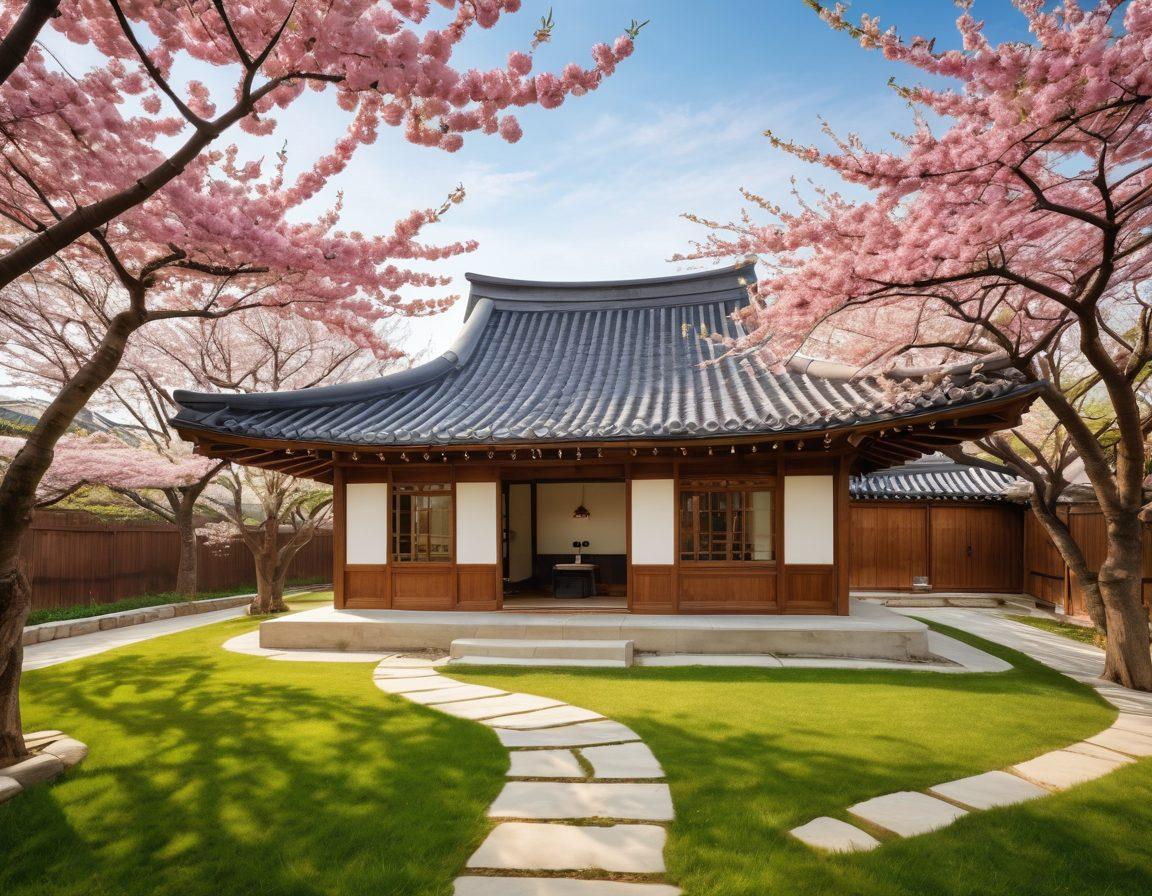Exploring South Korean Psychology: Bridging Cultural Traditions with Modern Mental Wellness Practices
Imagine a world where ancient wisdom meets modern science—a realm where traditional beliefs and practices seamlessly integrate with contemporary psychological insights. South Korean psychology offers a unique lens through which we can explore this integration, particularly how Korean traditions enhance modern psychological practices. It’s a beautiful tapestry woven with threads of culture, resilience, and innovation, enriching the minds and hearts of its practitioners while fostering mental wellness among the community.
In the realm of South Korean psychology, one cannot overlook the significance of Korean traditions. These traditions have long placed a strong emphasis on family dynamics and community support, laying the groundwork for mental resilience. One might ponder: how can these time-honored customs bolster the efficacy of psychotherapy today? The answer lies in their ability to enhance the emotional intelligence of individuals, creating a nurturing environment that promotes open discussions about mental health awareness and psychological assessment.
Take, for instance, the approach of Korean counseling, which often incorporates cognitive behavioral therapy (CBT) enriched with cultural nuances. Therapists utilize not only modern psychological techniques but also integrate the wisdom of cultural psychology, fostering a space for clients to navigate their cognitive processes within the context of their lives. This dual approach prompts a question: can we grow emotionally by understanding our roots? Indeed, by embracing Korean traditions, practitioners can develop potent well-being strategies that resonate deeply with their clients' unique experiences.
Moreover, mindfulness in therapy has become a cornerstone of contemporary psychological practices in South Korea. Practitioners implement therapeutic techniques that encourage clients to cultivate present-moment awareness. These methods draw heavily on Zen practices and traditional relaxation techniques that have been part of the Korean culture for centuries. This evolution in psychological practices invites us to reflect: how might integrating mindfulness reshape our mental health journeys? Think of it as a bridge—linking the wisdom of the past with the demands of modern life, fostering healing at multiple levels.
In a world where the pace of life can lead to emotional overwhelm, the integration of ancient wisdom into modern psychological practices holds the potential for transformative change. By marrying Korean traditions with contemporary techniques, mental health professionals not only honor their heritage but also pave the way for innovative approaches to emotional well-being. As South Korean psychology continues to evolve, it opens up new avenues for psychological studies — beckoning us all to consider: how can we learn from these practices to enrich our own emotional and mental lives?
The Rise of Mental Resilience: Exploring South Korean Strategies for Well-Being
In recent years, the topic of mental resilience has gained significant traction, particularly in the context of South Korean psychology. With a rich heritage deeply rooted in unique cultural traditions, South Korea is not only embracing traditional values but also integrating them with modern mental wellness practices. This fusion creates a fascinating landscape that influences psychological practices and therapeutic techniques through a distinctly Korean lens. Have you ever wondered how these strategies could enhance personal well-being and emotional intelligence in your life?
Korean traditions emphasize the importance of community, family dynamics, and social support systems, which are pivotal in maintaining mental wellness. This is evident in the rising awareness of mental health, as cultural attitudes shift towards openness and understanding. According to various psychological studies, individuals who engage in collective practices report higher levels of emotional resilience. How can we harness these insights and implement relatable well-being strategies in our personal experiences to foster mental resilience?
One of the key elements in the rise of mental resilience in South Korean society is the application of cognitive behavioral therapy (CBT) and mindfulness in therapy. These contemporary psychotherapy approaches address cognitive processes that influence emotional responses while respecting the cultural context of the clients. Consider this: how do culturally tailored psychological assessment tools enhance the effectiveness of these techniques? A greater understanding of our own thought patterns can open up pathways to healthier coping mechanisms and emotional regulation.
Moreover, Korean counseling often focuses on the integration of traditional mindfulness practices with established therapeutic techniques. This combination is not merely beneficial for those facing mental struggles but also for anyone seeking to improve their overall well-being. Think of mindfulness not just as a therapeutic tool, but as a way to cultivate a holistic approach to life. How might incorporating mindfulness into your daily routine inform your interactions and enhance your emotional intelligence?
Ultimately, the landscape of South Korean psychology reveals a powerful synergy between heritage and modernity. By embracing these well-being strategies and acknowledging the pivotal role of cultural psychology, we not only pave the way for increased mental health awareness but also foster a stronger foundation for individual and community resilience. The commitment to understanding the mind's intricate processes while rooting ourselves in communal support sets a precedent that many other cultures could benefit from. What lessons can we take from South Korea that can empower us in our own mental wellness journeys?
Cultural Insights in Therapy: Navigating South Korean Psychology and Counseling Techniques
Imagine walking into a serene therapy room, where the gentle scent of jasmine fills the air and soft music plays in the background. You sit down with a therapist who not only understands your personal struggles but also deeply appreciates the rich nuances of your cultural background. This is the essence of South Korean psychology, where traditional Korean values seamlessly weave into modern mental wellness practices. By exploring cultural insights in therapy, we can understand how Korean psychological practices are uniquely positioned to offer effective solutions for emotional and mental health challenges.
South Korean psychology is heavily influenced by its cultural traditions. With family being at the core of Korean life, Korean counseling often emphasizes the importance of family dynamics and relationships. Have you ever felt the strong pressure of family expectations? In Korea, this is common; thus, therapists often incorporate family-centered approaches into psychological assessments and therapeutic techniques. An understanding of these cultural dynamics can foster a stronger connection between the therapist and client, leading to more impactful psychotherapy sessions.
Another fascinating aspect of South Korean psychological practices is the increasing integration of mindfulness in therapy. Mindfulness has gained popularity as a well-being strategy, encouraging individuals to stay present and cultivate emotional intelligence. Therapists are adopting cognitive behavioral therapy alongside mindfulness techniques to help clients manage stress and build mental resilience. As we navigate the complexities of modern life, have you considered practicing mindfulness in your own daily routine? Take a moment to breathe and center yourself—small shifts can make a significant difference!
The realm of psychological studies within South Korea has been expanding exponentially, reflecting a growing awareness around mental health. Despite stigma often surrounding mental health issues in many cultures, South Korea is gradually changing its narrative. With initiatives to increase mental health awareness, including community workshops and education, the societal perception of mental wellness is rapidly evolving. Engaging in conversations about mental health can pave the way for understanding and accepting psychological struggles, ultimately dismantling harmful stereotypes and promoting a culture of empathy.
As we delve deeper into the interplay of cultural psychology and modern practices, the importance of collaboration between East and West in therapy becomes clear. The blend of Korean traditions with contemporary psychological approaches creates a unique mosaic of mental health strategies. This not only honors the cultural heritage but also enriches the therapeutic landscape with diverse perspectives. So, what can we learn from South Korean psychological practices? Adopting a culturally informed lens in therapy may offer innovative pathways to holistic mental wellness for individuals from all backgrounds.


